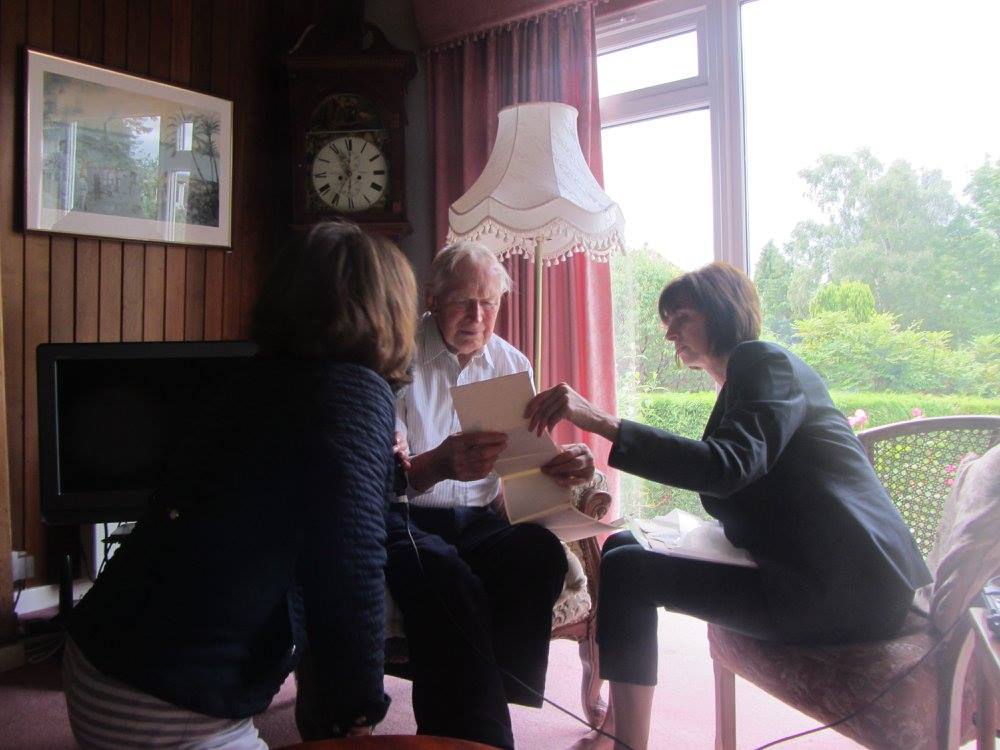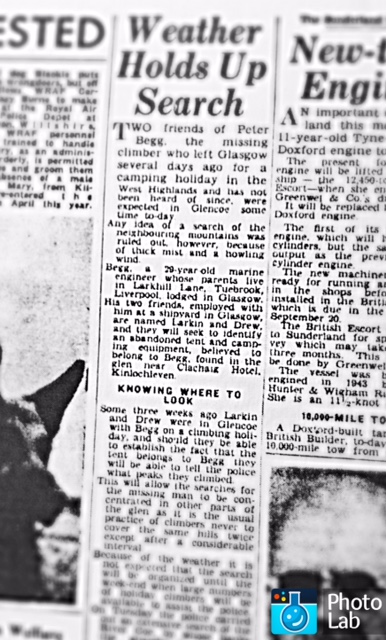Eric Drew is a tall, still active man in his late eighties, with a devilish sense of humour. He has spent most of his life climbing the mountains and walking the hills of Scotland. He got to know Peter Begg when they joined Yarrows Shipyard on the same day to work on the Yarrow Admiralty Research programme together. Sharing a love for the mountains, they often went climbing and when Eric came back from a holiday on Arran in September 1954 to hear Peter had disappeared, he was worried, but convinced he would find him.
“I searched every weekend until January” he told me when we went to see him at home near Glasgow in July, only giving up when the winter set in and his feet were damaged from the cold and frost.

“I’ll never forget the look in their eyes” he says when he recalls coming down from the mountains for the last time, to meet Peter’s parents’ expectant gaze, and having to tell them he was giving up the search. “Oh it was terrible. I let them down”
The letters he wrote to Peter’s parents Grace and Harry in the weeks following his disappearance are a moving testament to friendship and loyalty:
“Now I realise how everyone feels about Peter being on the hill” he writes “but he is not alone. Others are up there lying beside him and many times I and my friends and his friends too who knew him will be beside him. He will not be lonely in the land which was truly his second home”
He still wakes up at night wondering what happened to him. Did he set off for the Lost Glen, trip and lose his footing, fall down a crevice? Did he fall into the river and get swept out to sea at Glencoe? No, he was too experienced, fit and capable to die in such a prosaic way, concludes Eric.
So how can he have simply disappeared?
According to Eric, someone gave Peter a lift up to Glencoe from Glasgow that Friday evening. He spoke to him at the time, but now can’t remember who he was or where he dropped him. Who was Bryan Larkin, I ask, the other man named in the newspapers as being a friend of Peter’s who helped search? Larkin worked at Yarrows. He was a bit of an attention seeker Eric tells me, someone who put themselves at the forefront of the story, speaking to the police as though he was a close friend.
And Eric says that Peter called himself by his middle name in Glasgow “Just call me Ernie” he told him. “Why would that be, I ask?” “New identity?” replies Eric. This is just what I and my cousins are starting to believe – that Peter/Ernie did not die in Glencoe, but chose to disappear.


